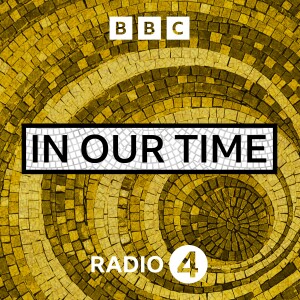
Melvyn Bragg and guests discuss the idea that God created the universe and then left it for humans to understand by reason not revelation. Edward Herbert, 1583-1648 (pictured above) held that there were five religious truths: belief in a Supreme Being, the need to worship him, the pursuit of a virtuous life as the best form of worship, repentance, and reward or punishment after death. Others developed these ideas in different ways, yet their opponents in England's established Church collected them under the label of Deists, called Herbert the Father of Deism and attacked them as a movement, and Deist books were burned. Over time, reason and revelation found a new balance in the Church in England, while Voltaire and Thomas Paine explored the ideas further, leading to their re-emergence in the French and American Revolutions.
With
Richard Serjeantson
Fellow and Lecturer in History at Trinity College, Cambridge
Katie East
Lecturer in History at Newcastle University
And
Thomas Ahnert
Professor of Intellectual History at the University of Edinburgh
Producer: Simon Tillotson
view more
More Episodes
Julian of Norwich
 2023-11-16
2023-11-16
 2023-11-16
2023-11-16
The Federalist Papers
 2023-11-09
2023-11-09
 2023-11-09
2023-11-09
Plankton
 2023-11-02
2023-11-02
 2023-11-02
2023-11-02
The Economic Consequences of the Peace
 2023-10-26
2023-10-26
 2023-10-26
2023-10-26
The Seventh Seal
 2023-10-19
2023-10-19
 2023-10-19
2023-10-19
Melvyn Bragg talks to Mishal Husain
 2023-10-19
2023-10-19
 2023-10-19
2023-10-19
Albert Einstein
 2023-10-12
2023-10-12
 2023-10-12
2023-10-12
Jupiter
 2023-07-27
2023-07-27
 2023-07-27
2023-07-27
Elizabeth Anscombe
 2023-07-20
2023-07-20
 2023-07-20
2023-07-20
Death in Venice
 2023-07-13
2023-07-13
 2023-07-13
2023-07-13
Oedipus Rex
 2023-07-06
2023-07-06
 2023-07-06
2023-07-06
Mitochondria
 2023-06-29
2023-06-29
 2023-06-29
2023-06-29
Louis XIV: The Sun King
 2023-06-22
2023-06-22
 2023-06-22
2023-06-22
Virgil's Georgics
 2023-06-15
2023-06-15
 2023-06-15
2023-06-15
The Shimabara Rebellion
 2023-06-08
2023-06-08
 2023-06-08
2023-06-08
The Dead Sea Scrolls
 2023-06-01
2023-06-01
 2023-06-01
2023-06-01
Walt Whitman
 2023-05-25
2023-05-25
 2023-05-25
2023-05-25
Linnaeus
 2023-05-18
2023-05-18
 2023-05-18
2023-05-18
The Battle of Crécy
 2023-05-11
2023-05-11
 2023-05-11
2023-05-11
Cnut
 2023-05-04
2023-05-04
 2023-05-04
2023-05-04
012345678910111213141516171819
Create your
podcast in
minutes
- Full-featured podcast site
- Unlimited storage and bandwidth
- Comprehensive podcast stats
- Distribute to Apple Podcasts, Spotify, and more
- Make money with your podcast
It is Free
- Privacy Policy
- Cookie Policy
- Terms of Use
- Consent Preferences
- Copyright © 2015-2024 Podbean.com



